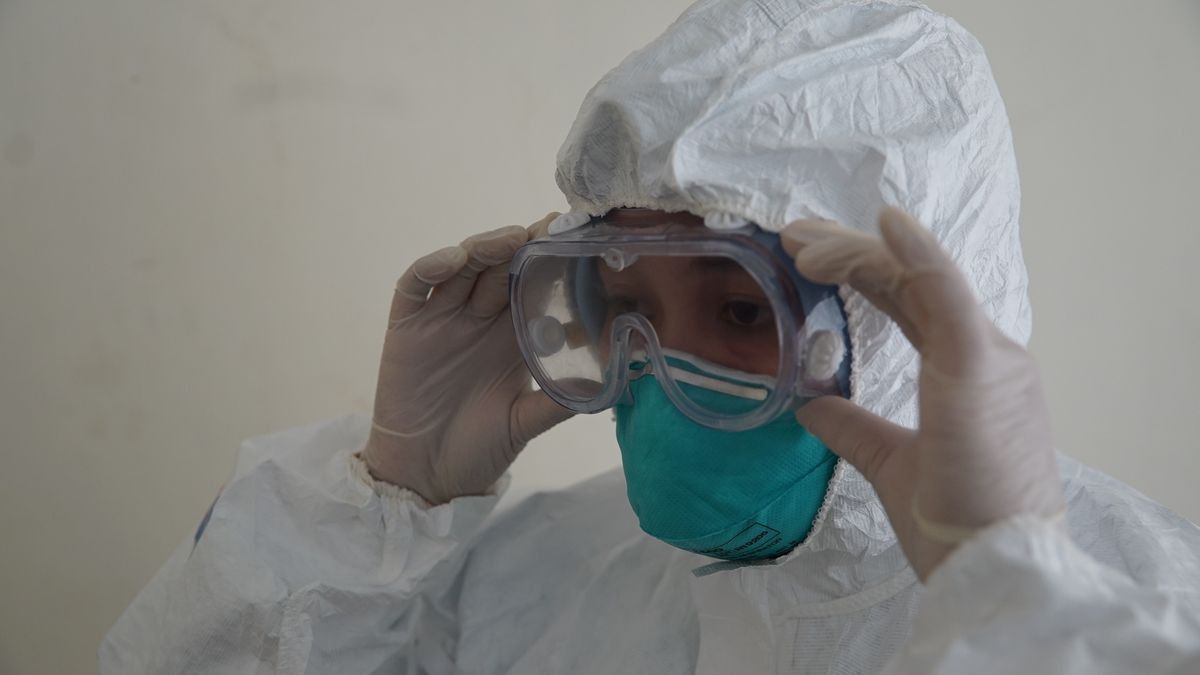JAKARTA - Spokesperson for the COVID-19 Vaccination Ministry of Health (Kemenkes) Siti Nadia Tarmizi invites the public to prevent the spread of acute hepatitis transmission through the application of a healthy lifestyle.
"If parents see a child with complaints of nausea, vomiting, or diarrhea, immediately take him to the puskesmas. Don't wait for the child to get jaundice," Nadia said, quoted by Antara, Friday, May 13.
Until now, said Nadia, the cause of acute hepatitis is still unknown. The Ministry of Health is also still monitoring the development of acute hepatitis to determine whether transmission can occur in adults.
The World Health Organization (WHO) itself is even still categorizing the disease as probable because the type of virus that causes the mysterious disease is not yet known.
Based on data from the UK, about 92 percent of Adenovirus has been found in children with acute hepatitis. This causes the child to experience complaints in the respiratory and gastrointestinal tract.
According to Nadia. Transmission is suspected to occur through the air or droplets. Therefore, everyone is advised to continue to wear masks properly and correctly. Transmission can also occur through the faecal-oral route from food.
"There is also a suspicion of viral hepatitis or Adenovirus that mutates like that so that we only know that it is most likely that so far, hepatitis is mostly transmitted through fecal-oral, fecal-oral through food," said Nadia.
Realizing that acute hepatitis cannot be underestimated, Nadia invites everyone to adopt a healthy lifestyle through disciplined health protocols, such as diligently washing hands, eating cooked food, and drinking clean water.
In addition, for people who have children, they must immediately take their children to the nearest health facility to complete immunization with hepatitis B vaccine. In addition, tighten supervision of children under 1 year of age who have not been able to take vaccinations, both hepatitis or COVID-19.
Nadia emphasized that all parties must understand the importance of early detection if a child appears to be suffering from symptoms of acute hepatitis, such as diarrhea, stomach pain, yellow eyes, brown urine, and pale stools.
According to him, at the school, the canteen that will be opened needs to be ensured that it manages every food and drink in a clean and cooked manner, and uses gloves for those who sell food.
If you look at the speed of transmission of the number of acute hepatitis cases to date, according to him, the potential for it to become a pandemic is still very small. However, the Government continues to urge that there should not be an increase in cases that cause extraordinary events in Indonesia.
"So far we have known, including that health protocols must still be carried out. This pandemic has not been declared over by implementing health protocols, we can avoid acute hepatitis or COVID-19. So, there is no need to panic, continue to be alert if there are symptoms, immediately bring the child. to a health facility," said Nadia.
The English, Chinese, Japanese, Arabic, and French versions are automatically generated by the AI. So there may still be inaccuracies in translating, please always see Indonesian as our main language. (system supported by DigitalSiber.id)













